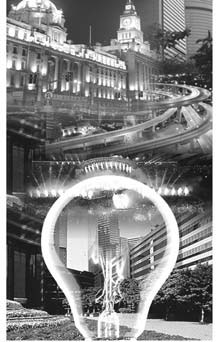
Today marks the opening of the 17th National Congress of the Communist Party of China (CPC).
Though a non-CPC member, I remember quite a few of its past events. One of the major ones was around the same time 31 years ago, in 1976, its decision to remove the so-called Gang of Four, a group of individuals who had abused power and was responsible for bringing the economy to a standstill, if not near collapse.
The scenes of how people welcomed the move, at mass meetings in Tian'anmen Square and in the village where I worked are still vivid in my mind.
They knew they were about to enter a new, and presumably better, way of life - as they did two years later, when Deng Xiaoping helped the nation start its engine of reform. It was only from that point the economy began to learn to produce more, and to be more competitive.

That was a time when China could not even make electrical fans that did not make tractor-like noises. But at many high-level occasions, Deng encouraged his comrades, in one of his trade-mark phrases, to "seize the opportunity".
Now, some 30 years later, together with the rest of the world, China is facing a crossroads - continue to produce more, but waste no more, or consume less. At this time, the latter requires a greater sense of urgency.
In fact, from Saturday's New York Times, one learns how some Americans have lamented their squandering over the past few years for failing to take timely and appropriate action to stop it - except, perhaps, for a few individuals like the Nobel laureate former president Al Gore.
The Nobel Peace Prize is an indication to the world that time is running out for doing all the things that should have been done to curb global warming and to protect the environment.
Moreover, what activists have been doing so far is largely focusing on a campaign to raise awareness. Practical solutions, based on technologies that can be used by people in developing nations, still seem far away.
To cope with such a many-faceted problem as climate change, people continue to stretch their imaginations by talking about ambitious and costly solutions. But to start with, who is going to develop and use those solutions?
Only a very focused government can do that - as focused as China once did in trying to raise an economy that could not make marketable electrical fans to become the third largest trading power in the world.
Only a government that commits most of its national resources to peace and development - and also understands the new definition of development.
Only a government surrounded by informed and self-reflective opinions - and not by opinions that habitually blame others for one's own mistakes and failures.
Only a government with the power to change its industrial landscape created not long ago, after introducing higher technological standards and amending laws and regulations. And one with the resources to create new jobs, and to bear in mind the interests of its people.
I believe China, as a developing country with relatively rich resources, has a good chance to do so and make a new contribution to the world - so long as its leaders decide, once again, to "seize the opportunity".
E-mail: younuo@chinadaily.com.cn
(China Daily 10/15/2007 page4)

